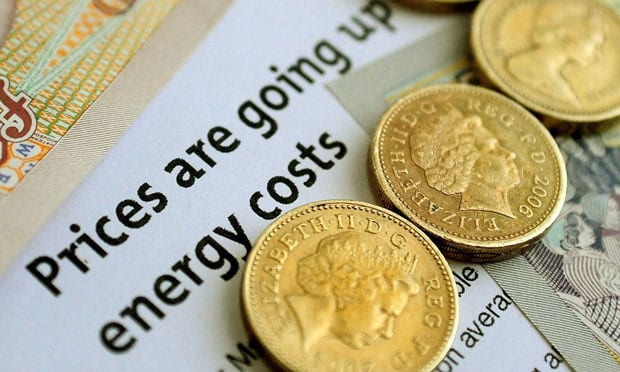Money saving expert Martin Lewis has joined calls urging the government to postpone the planned April 1 hike.

In a letter to chancellor Jeremy Hunt on February 9, money saving expert Martin Lewis noted how the energy price increase announcement was made in the November Autumn Statement, when wholesale rates were looking to be far higher than they are now. After July, the underlying price cap currently looks like it may be cheaper than even the current energy price guarantee (EPG) rate of £2,500 a year for a typical household, says Lewis.
‘Practical and fair decision’
The consumer expert added that postponing the increase is a “practical and fair decision,” with household energy bills already double what they were the prior winter.
“Crucially, the damage to people’s pockets and mental health of another round of energy price rise letters is disproportionate,” Lewis wrote in his letter to the chancellor.
Talking to BBC Radio 4 this week, the campaigner referred to the raising of an average household’s annual energy bill from £2,500 to £3,000 a “national act of harm”, which would bring another 1.7 million people into fuel poverty.
Energy grants coming to an end
Following Russia’s invasion of Ukraine a year ago, wholesale gas prices soared worldwide. However, they have since come down, partly because of a relatively mild winter in the UK and the rest of Europe. The energy bill price hike will come as the £400 energy grant is due to end. The scheme began in October 2022, to help families struggling amid energy price rises. It runs until the end off March 2023.
Martin Lewis’s letter, which pointed to the ending of the grant scheme, has the backing of a number of major charities, including National Energy Action, Citizens Advice, and StepChange.
Simon Francis, coordinator of End Fuel Poverty, which campaigns to influence the government and other bodies to take action to end fuel poverty, said that keeping the EPG at current levels is the very least the government can do to help manage the energy crisis.
Customers are ‘facing a cliff edge’
He said, as other support schemes are coming to an end at the end of March, customers are “facing a cliff edge.”
“Everyone will see their bills go up between 19 percent and 43 percent from what they are paying now, depending on what level ministers set the EPG at.
“The government has said that it will target more support at vulnerable groups from April, but again this does not equate to the same level of help people have had this winter.
“And that help has proven to be insufficient with millions spending this winter struggling in cold damp homes,” said Francis.
Greenpeace threatens legal action
The calls come as Greenpeace has threatened to take legal action against the government over its failure to meet fuel poverty targets. According to the campaign group, the government’s plans to upgrade the energy efficiency of homes will help fewer than 6 percent of fuel poor households by 2030.
In a letter to Grant Shapps, Greenpeace said it would take legal action unless government committed to reviewing its strategy to tackle fuel poverty and sets out how it will hit targets.
Mel Evans, Greenpeace UK’s head of climate, said: “By throwing in the towel on tackling fuel poverty the government has shackled the poorest people to the coldest homes and the highest bills.
“Almost a quarter of all households are now in fuel poverty. This is a national crisis yet the government’s failing strategy for tackling it means that at this rate it won’t meet its legally binding 2030 target until close to the end of the next century,” Evans added.
Gabrielle Pickard-Whitehead is a contributing editor to Left Foot Forward
Left Foot Forward doesn't have the backing of big business or billionaires. We rely on the kind and generous support of ordinary people like you.
You can support hard-hitting journalism that holds the right to account, provides a forum for debate among progressives, and covers the stories the rest of the media ignore. Donate today.



